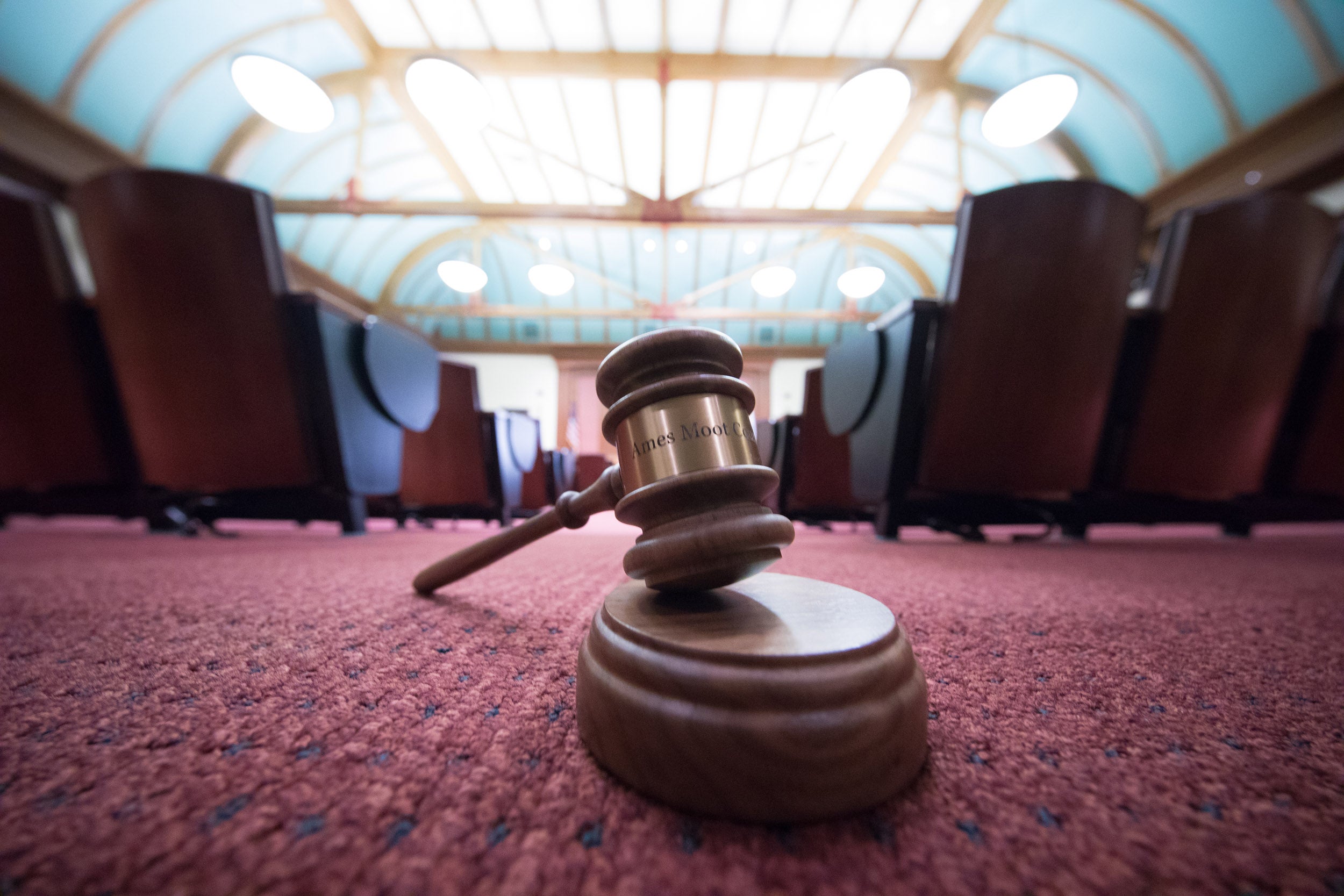The Final Round of the 2022 Ames Moot Court Competition kicks off on Thursday, November 10, 2022, at 7:30 p.m., in the historic Ames Courtroom at Harvard Law School.
One of the highlights of the academic year for the entire Harvard Law School community, the Ames Competition has been one of the most prestigious competitions for appellate brief writing and advocacy in the nation for more than a century.
For the 2022 Final Round, two teams of third-year students —The Lani Guinier Memorial Team and The Justice Ruth Bader Ginsburg Memorial Team —- will argue the fictitious court case involving cross-state environmental damages, Energon, U.S.A. v. Ames County Board of Commissioners, before an esteemed panel of judges.
“Coming into law school, I knew about Ames as a competition,” said Lincoln Plews ’23, a member of The Justice Ruth Bader Ginsburg Memorial Team. “It was one of the factors I thought a lot about when I decided to come here.”
“Everyone who is interested in litigation, who’s interested in writing and strategy and problem-solving, I think Ames is for them,” said Emily Hatch ’23, a member of The Lani Guinier Memorial Team.
The annual competition takes place in three rounds, beginning with the qualifying round in the fall of students second year, followed by the semi-final round in the spring, and culminating in the final round during their third and final year of study.
“It’s an unparalleled opportunity as a law student to get hands-on experience doing appellate litigation, trying out these issues, and really putting together a professional level brief,” said Nikolas Paladino ’23, a member of the Ruth Bader Ginsburg Memorial Team.
“This is one of few opportunities that we have to really develop our oral advocacy skills,” said Samantha Neal ’23, of the Professor Lani Guinier Memorial Team. “The process, it just takes a lot of practice. We get together in a tiny room and we just ask each other questions for hours on end.
This year’s case turns on jurisdiction and whether federal common law governs claims seeking redress for injuries allegedly caused by the effect of interstate greenhouse gas emissions.
“The issue is about federal common law and interstate pollution. It’s really complicated and under-determined questions in federal law. And it’s confusing,” said Daniel Ergas ’23, of the Professor Lani Guinier Memorial Team. “It’s cool to have the opportunity to take these complicated issues and try and package them in a way that makes them accessible.”
“Just being able to spend dozens of hours, probably hundreds of hours at this point, working with people who are extraordinarily talented, it’s been something that I’ve been really fortunate to have,” said Connor Haaland ’23.
“It’s a team environment, a team sport, and being able to have these really terribly clever people I get to work with and chat about interesting ideas with, it’s just been one of the highlights of my law school experience,” said Ergas.
